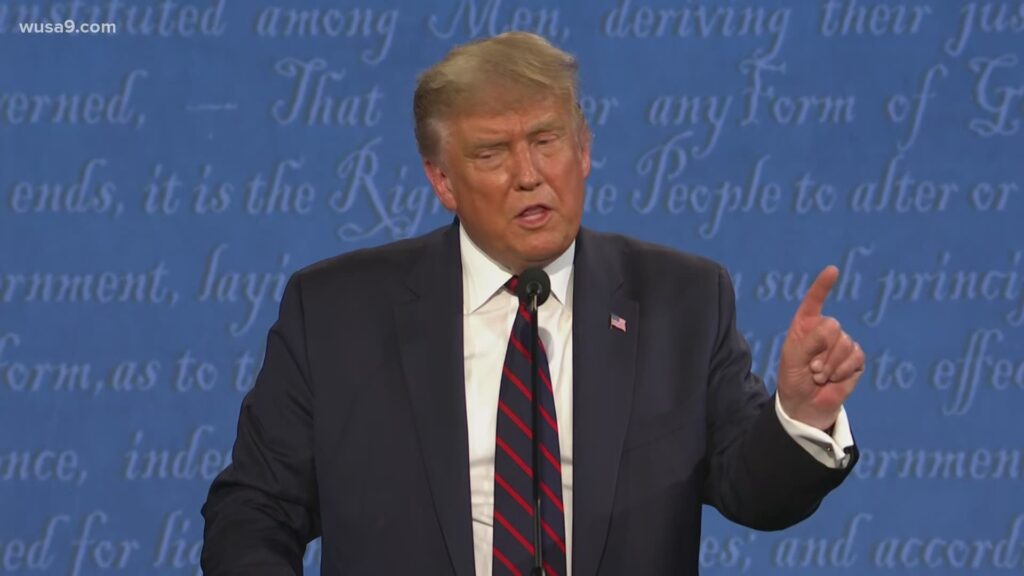
Donald Trump
STRATEGIC ASSESSMENT. The furor began escalating following the Federal Bureau of Investigation (FBI) raiding former President Donald Trump’s residence and club in Mar-a-Lago, Florida in early August to retrieve classified documents that Trump took with him after leaving office. In the immediate aftermath of the raid, an anti-government violent extremist attempted to attack the FBI building in Cincinnati, dying after a shoot-out with law enforcement.
One of the byproducts of years of political polarization in the United States has been the erosion of previously established norms. In late 2022, it has become normalized for Americans to talk about civil war and make politically or ideologically motivated threats of violence against their fellow citizens and longstanding U.S. institutions. As groups previously on the fringes of society—including anti-government organizations and militia violent extremists— become more common and accepted in the mainstream, those calling for calm and seeking to advance a more moderate agenda have been marginalized. Yet such violent rhetoric is not limited to once fringe militia, as government leaders have used their platforms to both stoke and pontificate their own threats of violence. In late September, former President Trump posted on his Truth Social platform that Senator Mitch McConnell had a “DEATH WISH,” in what many viewed as a threat over McConnell agreeing to a deal to the fund the government. Moreover, as some leaders spouting incendiary rhetoric increasingly invoke religious language and imagery, the potential for mainstreaming violent language and narratives – particularly to those who otherwise would condemn it – becomes alarmingly acute. The rising threat of Christian nationalism, a cultural identity that experts say is agile enough to include militia groups, QAnon conspiracists, and election deniers, often marries apocalyptic language with an aim for the U.S. to be declared a Christian nation and the government to promote a specific interpretation of Anglo-Protestantism as the country’s official culture. Some Christian nationalists have openly called for such an aim to be accomplished through civil war, to fight evil forces and restore the country to a mythical greatness of the past.
On sites like Reddit, Parler, Telegram, Gab and Trump’s social media platform Truth Social, there have been widespread calls for civil war, echoing some of the most violent rhetoric that accompanied the lead-up to the January 6, 2021, Capitol insurrection. More than 900 individuals have been charged in relation to crimes committed related to that event. Yet the arrests clearly have not been the deterrent many hoped for, as online threats against elected officials continue to appear and often surge after events like the Mar-a-Lago raid or President Biden’s speech decrying “MAGA Republicans” in Philadelphia last month. Conspiracy theorists, election deniers, and purveyors of mis-, dis-, and mal-information (MDM) will seek to play an outsized role in the upcoming midterm elections, opening up opportunities for foreign actors to amplify election-related disinformation MDM narratives in an effort to foment chaos and weaken America’s image and leadership abroad.
At the heart of Trump’s disinformation campaign was the so-called ‘Big Lie’ that the election was stolen, an unfounded notion that has been dismissed by legal scholars, election officials, and state and federal judges across the political spectrum. Despite the Trump campaign’s legal losses, the narrative continues to be parroted by Trump sycophants hoping to curry favor with the former President and has resulted in catastrophic consequences. Election workers are now receiving active shooter training, as election sites and offices are in the process of hardening formerly soft targets, hiring security guards, and installing bulletproof and bomb-resistant glass, images typically reserved for countries in conflict zones. These measures are in addition to the work of the Election Threats Task Force, created in June 2021 by the Department of Justice in response to elevated levels of threats against election and poll workers. Election workers left their jobs in record numbers following the November 2020 U.S. presidential election. After Philadelphia city commissioner Al Schmidt defended the integrity of the election, he received a text message that read “You lied. You [are] a traitor. Perhaps 75 cuts and 20 bullets will arrive soon.” Other election workers throughout the country were similarly harassed and targeted for intimidation.
Issues including abortion, immigration, COVID-19 vaccines, election integrity, and inflation have raised the temperature of an already hyper-partisan political climate. In the weeks leading up to the last midterm elections in 2018, there were four separate domestic terrorist attacks in the U.S., though each had a distinct message and spanned the ideological spectrum. Politicians that run political ads with direct threats of violence, as Eric Greitens did in his infamous “RINO hunting” television ad, only serve to exacerbate the issue while attempting to legitimize political violence against opponents. At a Trump rally in Michigan recently, Marjorie Taylor Green, a Georgia Republican, said that President Biden “has declared every freedom-loving American an enemy of the state.” She went on to declare that “Democrats want Republicans dead and they have already started the killings,” an inflammatory, unsubstantiated claim many viewed as potentially an incitement to retaliatory violence. As users on social media sites continue to glorify civil war in the United States, some worry about a self-fulfilling prophecy, where the direst predictions come true, leading to heightened violence in the lead-up to, during, and aftermath of the midterm elections.





